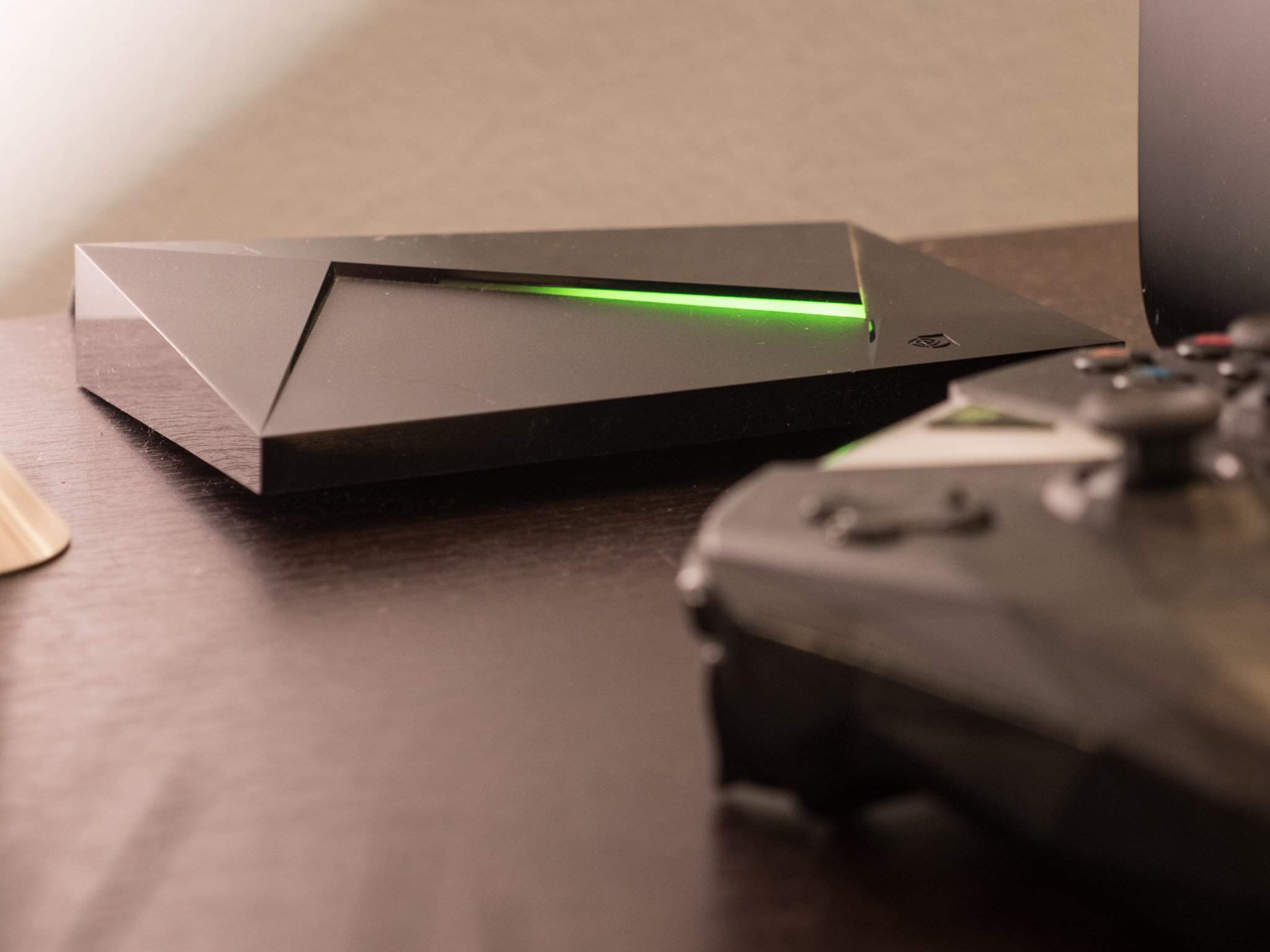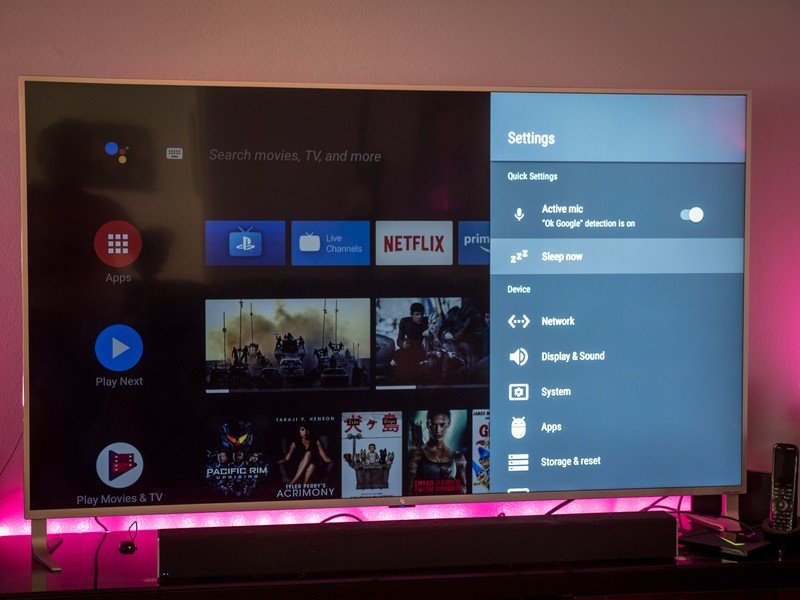The NVIDIA Shield TV is still one of the best Android devices you can buy

We all love the Shield TV around here. It's almost universally thought of as the best way to get Android on your TV, isn't outrageously expensive, and has enough power to stream your 4K HDR content without sputtering or complaining. It's also a decent gaming console and makes for a heck of a streaming server when you use Plex or Kodi. It's one of those rare gadgets we buy that does what is advertised and more; you'll get your money's worth from a Shield TV.
Another thing that isn't talked about as often is the level of support NVIDIA gives the Shield family and the Shield TV in particular. Released in 2015, it's one of the few devices that have been updated to Android Pie and the only four-year-old device that didn't come directly from Google to have it. And it doesn't "just" get updates; NVIDIA stopped work and then went to Google with concerns about why Oreo on Android TV wasn't awesome and the two companies worked to fix that. Then NVIDIA sent out an Oreo update. That kind of support is almost unheard of.
So why and how does NVIDIA do it when most other companies making Android-powered gadgets can't or won't? There are two parts to that answer, and both are pretty simple ideas.
Replay value

I originally wrote this when the Shield TV received the Android Oreo update. When that happened, even brand new devices were mostly running old software and update schedules for the Android-powered things we use every day had Oreo a long ways off. This little box was three years old and had received twenty major software updates since it was released. Yes, twenty.
Maybe it's sad that seeing four years of support makes us happy and these expensive gadgets should be updated and patched until they turn to dust. If you feel that way, I won't argue. But in the Android world seeing this level of support for a device that's still under $300 is unheard of, so I'm publishing this one again.
Here's to you, NVIDIA. We don't love everything you do as a company, but you deserve our respect for your work on the Shield TV.
Be an expert in 5 minutes
Get the latest news from Android Central, your trusted companion in the world of Android
Make one great product
NVIDIA is first and foremost a chip maker. It sells a few things like reference model video cards for computers, developer boards to support the company's AI platform, and you can buy a $69,000 compact supercomputer designed to act as an AI workstation if you have the itch for one. These are halo products designed to show what the company's main business — powerful GPUs — are capable of.
Fewer products means developers have the time to care about them.
NVIDIA also, of course, sells the Shield TV. The company has dabbled in Android a bit but quickly exited once it learned how hard it can be to dabble and profit at the same time. The Shield TV exists to showcase NVIDIA's ARM SoC and the company's various gaming services, such as Game Stream. Maybe NVIDIA could conquer the Android world if it really tried, maybe not. We don't know because it's not trying to; it sells one Android device that happens to show off other things the company has to offer.
That means the people who do the designing and thinking and developing have one thing to focus on improving and supporting. One thing to be, for lack of a better word, proud of. When your company makes hundreds of different Android products, it's impossible to give each and every one the love it deserves. Even Samsung, the undisputed king of Android, has to spread time and energy between a dozen devices (and has done a marvelous job lately, kudos all around) and can forget about the rest once in a while.
When a bug or problem with the Shield TV pops up, the right people get the right amount of time to fix it promptly and sent out to us. That can't happen when there are too many things getting shipped out the door.
Make everything inside your great product

NVIDIA is in a rare position with the Shield TV that puts them alongside Apple and Samsung — the company makes the components inside the device that require attention. Like an iPhone or Galaxy S10, you'll find bits and pieces from other semiconductor companies or even rivals like LG inside, but the core component that gets "in the way" when it comes to updating and supporting software is the chipset. NVIDIA, of course, powers the Shield TV with its own Tegra X1 processor and 256-core Maxwell GPU. You can debate the strengths and weaknesses of the arrangement, and both are there to debate, but the company having control over the hardware means the future of the device is entirely in its own hands.
The Shield TV is built with and powered by NVIDIA parts.
When Android is updated to a new product version, like the jump from Oreo to Pie, developers have to work on the code that lets the chipset components interface with the system. For the most part, and NVIDIA is no exception here, that code is closed source and only the company that built the component can do it. Most companies that build consumer products source things like a processor from another company that specializes in building them.
I mentioned above that NVIDIA is first and foremost a chip maker — it has complete control over every piece of code needed to build any software for the Shield TV, including a new version of Android. Or a quick fix for an ugly bug. Or a regular update cycle that improves things like Bluetooth performance or device I/O speeds. Just as the company does for the chips used in video cards, it sends out regular maintenance updates that keep the Shield TV running amazingly well. And when it's time for a bigger update, there's nothing in the way from making it a reality, either.
I have no idea if the Shield TV will see Android Q whenever Google has it ready for the Android TV platform. I'm not even going to speculate on that here. But I will say I wouldn't be shocked if it happens. The company has the means and the desire to make the Shield TV a product you're happy you bought.

Jerry is an amateur woodworker and struggling shade tree mechanic. There's nothing he can't take apart, but many things he can't reassemble. You'll find him writing and speaking his loud opinion on Android Central and occasionally on Threads.

